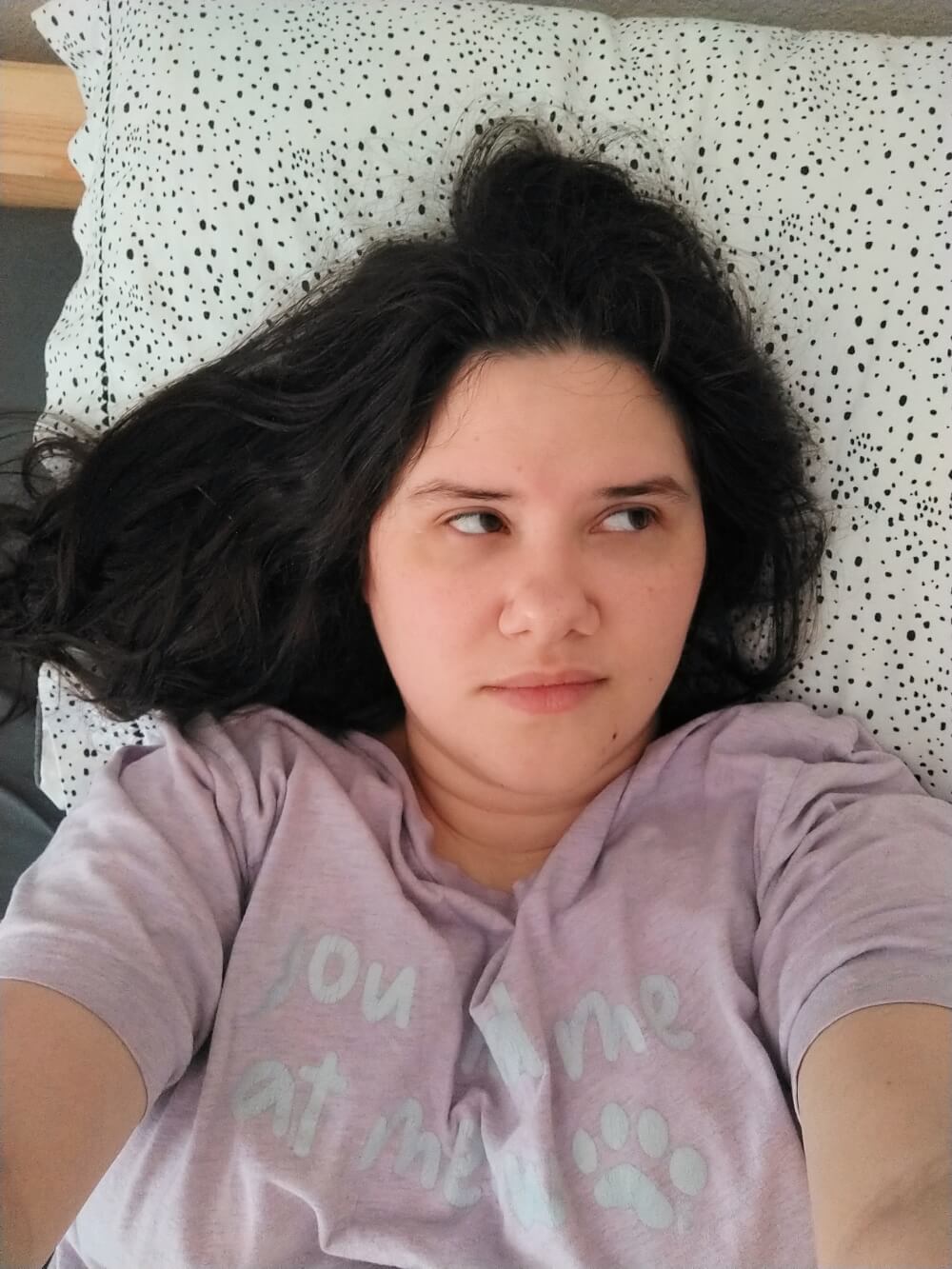When an anorexic is “hungry”, they’re starving.
I’ve hated this line ever since it was said to me some years ago. I didn’t began understanding it until a week after I read the words “if you’re not actively recovering, you’re dying”.

The body of someone who restricted their food intake is starved for nutrition, of any kind; it longs for energy. Starved bodies don’t care much for food morals, of what is “empty” in calories due to social constructs. In the context of refeeding, that doesn’t matter.
There’s a reason people in the early days of anorexia recovery straight up binge a random food. I’ve read about people eating entire tubs or bars of butter because the extreme hunger hit them so hard.
For me, it was brownies. It’s always brownies. If I eat an entire pan of brownies, I know I am in starvation mode. Why? Because I don’t like brownies that much. Like, at all.
Maintaining my eating disorder recovery has been extremely difficult since I moved out of my first apartment in Greenville. I regret succumbing to the manipulations of my maternal relatives, allowing them to convince me they knew what I needed, and moving closer to them.
My entire life went aflame because I forwent my needs in favor of calling them “luxuries” from my own internalized ableism. I had $12k to my name in savings that I could have spent entirely differently.
When I fell, I took the hand extended out to me of the same people who caused me to fall.
For that, I frequently find myself wondering why I think I deserve to eat. I know this is just narcissistic relatives’ words ringing on repeat in my head. That makes it trauma from emotional abuse.
Interoception
Because of autism, I struggle with something called interoception. This is the sense that notifies your brain whether you’re hungry, thirsty, need to pee, feel hot or cold, etc. That information is important for the brain.
Struggling with interoception is further complicated by having a history of anorexia, because eating disorders screw with your appetite.
By the time I say I’m hungry, I’m starving. While my body was behaving out of hunger prior to me saying I’m hungry, the recognition took longer. Even more time passes before I admit to being hungry, because I have to muster up the courage to admit it.
Having to tell someone else that I’m hungry, and asking them to stop someplace so I can get food, happens when I’m in a vehicle with someone else. I don’t like going over to people’s houses anymore unless I’m free to dip into their food (like if they have snacks) during hunger emergencies.
In other words, I don’t realize I’m hungry until I’m starving.
I don’t realize I have to pee until I’m on the verge of wetting my pants.
Starvation in anorexia looks and feels different from the expectations
I imagine everyone has seen a picture of the stereotypical anorexic — extremely thin, looking like skin and bones.
Anorexia nervosa is the most well-known form of anorexia, but it’s also the least common.
The most common form of anorexia is atypical anorexia nervosa — which is also the least known. Every time I told a coworker, they said they’d never heard of it before. “Is that a new diagnosis?” 🥴
Less than 8% of people struggling with an eating disorder are underweight.
Things I didn’t know were happening because I was starving until after I ate:
- Difficulties breathing, like wheezing/rasping
- Foggy/cloudy head feeling
- Feeling like my ribs are being squeezed when I cough
- Feeling a tickle or like something’s stuck in my throat that I just can’t get out
- Extreme exhaustion and lack of motivation
- Can’t remember anything
- Inability to form coherent thoughts and think clearly
- Increasingly losing skills and muscle memory
- Basic, everyday things slowly become heavier
- Extreme body aches
- Symptoms worsen with physical exertion/exercise/etc.
Even the smallest amount of food helps relieve the symptoms. However, that doesn’t mean I can eat just a little to stave off hunger.
Doing that creates a push-pull pattern that is much more difficult to recover from. Every falter in eating disorder recovery makes the journey to remission that much harder.
I don’t have the privilege to eat less, skip meals, or “be hungry for just a little while”.
That’s not me being dramatic.
That’s me actively recovering from my eating disorder. I won’t apologize for that.
I wrote and published this post because I’ve spent the past few years searching for people who maybe felt or experienced similar. There is little to nothing. As always, I share my story to connect and spread awareness.
Love this post?
Support me by subscribing to my blog and/or buying me a cuppa:
Leave a comment